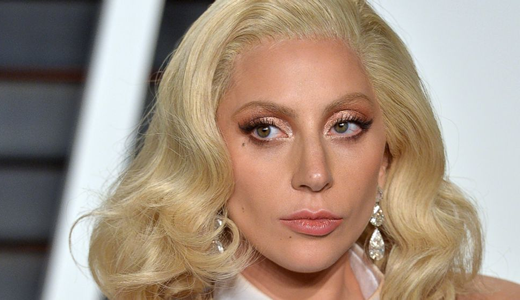Most of us gave thanks last Thursday, acknowledging our many blessings. Many celebrities likely did the same. But Lady Gaga suggested that, for all the fame and success she’s achieved (and is surely thankful for), something’s been lost along the way.
“I miss people,” she said on CBS Sunday Morning, breaking down in tears. “I miss, you know, going anywhere and meeting a random person and saying ‘Hi,’ and having a conversation about life. I love people.”
Meanwhile, folk singer Jewel said she is not so much thankful for fame, but for her family members, because their guidance helped her deal with fame. “I’m very proud of how my family raised me and how my grandfather raised my dad and his siblings,” she told Fox News. “… I learned I was capable; I wasn’t told I was capable. I learned confidence and I had struggles to overcome, and I was able to prove to myself that I was up to it and it is really something as a parent that I take to heart. … It definitely made me know from the get-go that fame and money don’t make you happy,” she added. “It’s what kind of human you are that determines that.”
But at least one celeb, Olympic gymnast Laurie Hernandez, is thankful to have claimed another chunk o’ fame—hers coming in the form of the mirror ball trophy given to the winner of ABC’s Dancing With the Stars. “I had the same joy as I had at the Olympics,” she told Good Morning America. “It was such an accomplishing moment.” Me, I’d prefer the gold, but hey, what do I know? I type for a living.
Shortly after Oxford Dictionaries selected “post-truth” as its word of the year, dictionary.com offered up its own word for 2016: xenophobia.
We talked last week about how depression is on the rise in teens. Unfortunately, so is suicide. It’s now the leading cause of death among kids between the ages of 10 and 14.
On the heels of much hang-wringing over false news stories filtering into our Facebook feeds and whatnot, Stanford studied nearly 8,000 middle schoolers and their ability to discern real, legitimate news stories and false ones—ones even branded as “sponsored content.” The results? Apparently 82% of those middle schoolers couldn’t tell the difference.
Believing fake news stories isn’t a sin, as far as I know. But if you’re Catholic and you do feel the sudden need to confess a sin and you’re not in proximity to a confessional, well, the Roman Catholic Church has you covered electronically. In early 2017, the Scottish archdiocese will roll out a confession app (dubbed “Sindr” by the masses). “The idea was really inspired by the Holy Father himself,” says Edinburgh’s Archbishop Leo Cushley. “He said to be imaginative about what to do for the Holy Year of Mercy.”
Finally, technology has its uses—even when it’s used mistakenly. Two weeks ago, Phoenix grandma Wanda Dench invited her grandson for Thanksgiving via text, or at least she thought she did. As the text conversation went on and the two exchanged photos, it became clear that Wanda was not communicating with her grandson, but 17-year-old Jamal Hinton (whom she didn’t know). When Hinton jokingly asked if he could still come for Thanksgiving, Dench said, “Of course you can. That’s what grandmas do … feed everyone!” So he did, bringing along a pumpkin pie for dessert.
Culture Clips are compiled by Paul Asay, Adam Holz and Bob Hoose






Recent Comments